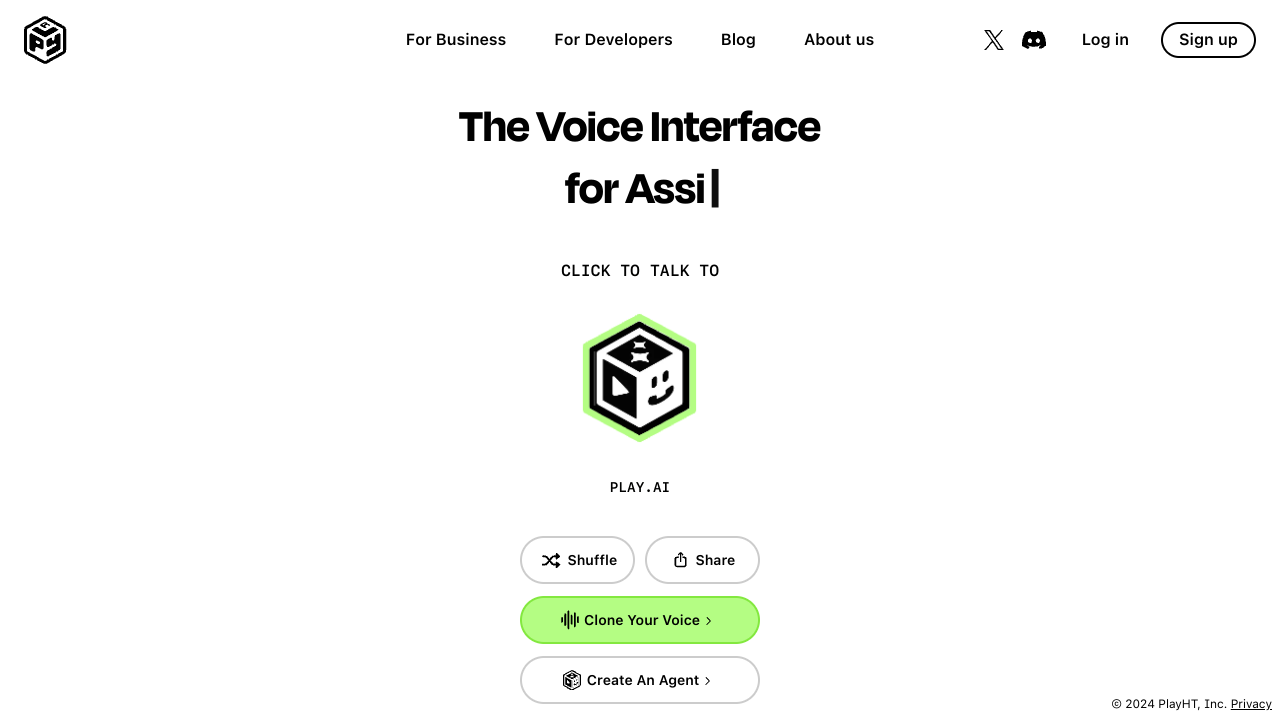Back in 2016, Hammad Syed and Mahmoud Felfel, a former WhatsApp engineer, had an idea to create a text-to-speech Chrome extension for reading Medium articles aloud. Their extension gained attention on Product Hunt, and within a year, they turned this idea into a full-fledged business.
Syed and Felfel’s company, PlayAI (formerly PlayHT), now offers a voice interface for AI, allowing customers to select from predefined voices or even clone their own. Through its API, businesses can easily integrate human-like text-to-speech functionality into their applications. Users can also adjust the voices’ tone, pitch, and cadence.
One of PlayAI’s standout features is its “playground,” where users can upload files to generate read-aloud versions or polished voice-overs. Recently, the company has ventured into “AI agents” with tools designed to automate tasks like answering customer calls for businesses.
PlayAI’s PlayNote feature is another innovative tool that turns PDFs, videos, photos, songs, and other files into engaging podcast-style shows, summaries, debates, and even children’s stories.
In tests, PlayNote performed well, turning a photo of a chicken mole dish into a five-minute podcast script. However, like all AI tools, it occasionally generates odd results, especially with certain types of content.
The company’s PlayDialog model can simulate conversations with context-aware speech, giving a natural flow and appropriate tone based on prior interactions.
While PlayAI competes with firms like ElevenLabs, it has faced criticism regarding safety and voice cloning. The platform requires users to confirm they have consent to clone voices, but there’s no enforcement mechanism. In testing, the system allowed the cloning of public figures’ voices, such as Kamala Harris’, raising concerns about misuse.
PlayAI claims it has ethical safeguards in place, such as identifying synthesized voices and addressing any misuse, including blocking users who clone voices without consent. They also emphasize that their most advanced voice clones are priced higher, which may deter scammers.
PlayAI’s approach to training its AI models involves a mix of open, licensed, and proprietary datasets, though the company doesn’t disclose specific sources for competitive reasons. The company has avoided legal battles so far, despite the growing legal scrutiny surrounding AI voice cloning.
The entertainment industry, particularly voice actors, is concerned that AI-generated voices could replace their work, with unions like SAG-AFTRA demanding fair agreements. In California, laws require businesses to negotiate with performers or their estates before using a digital replica.
PlayAI guarantees that any voice clone created on its platform is exclusive to the creator, protecting their rights.
Despite facing legal challenges and intense competition from companies like Amazon, Google, and ElevenLabs, PlayAI continues to attract investment, closing a $21 million seed round in November 2024 to expand its generative AI and voice agent capabilities.











